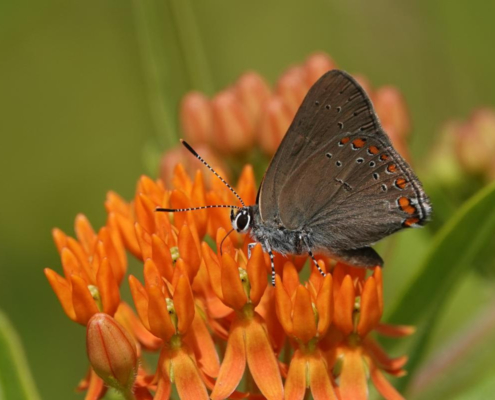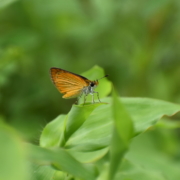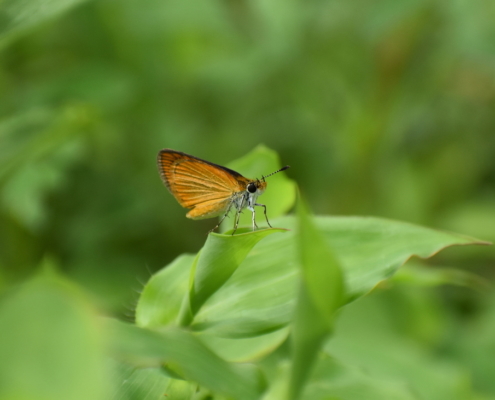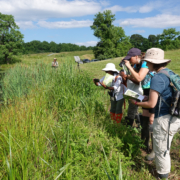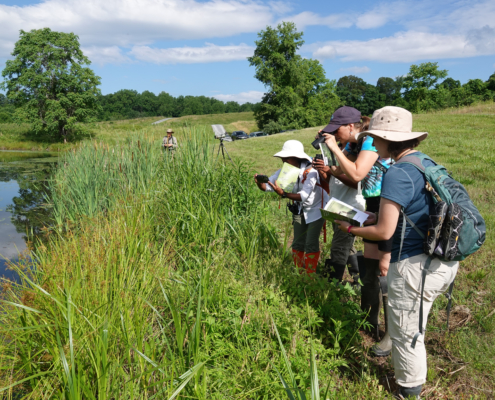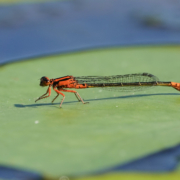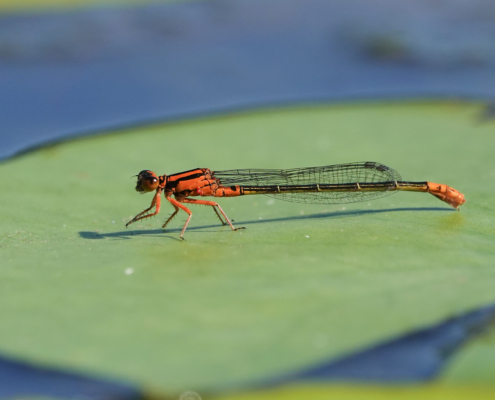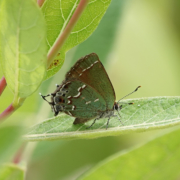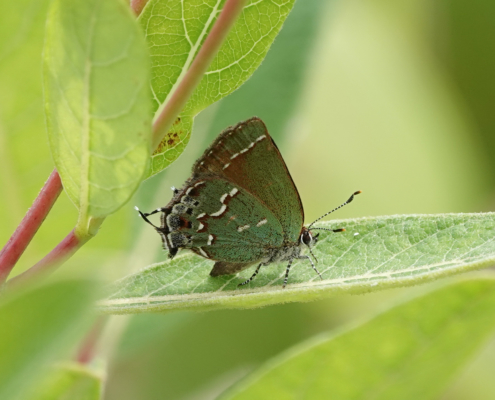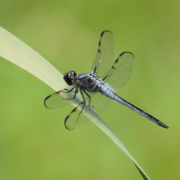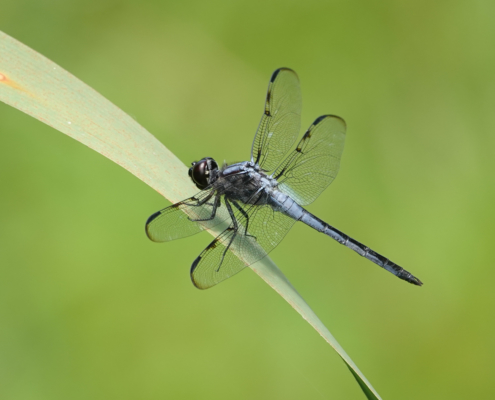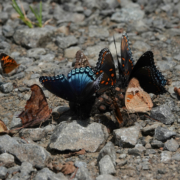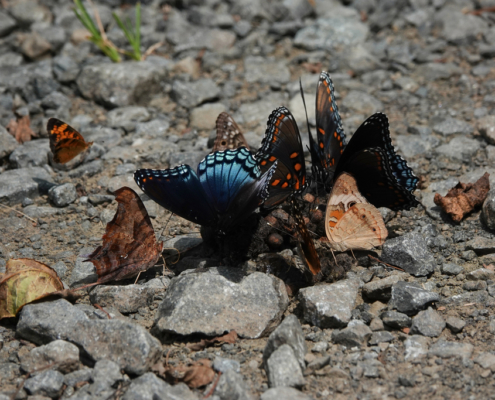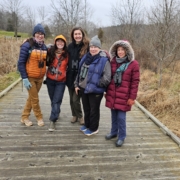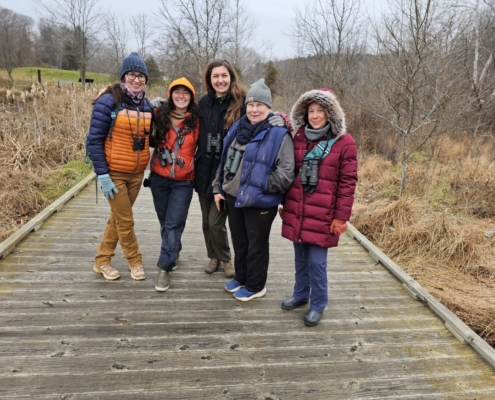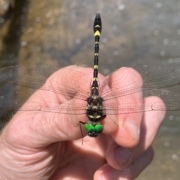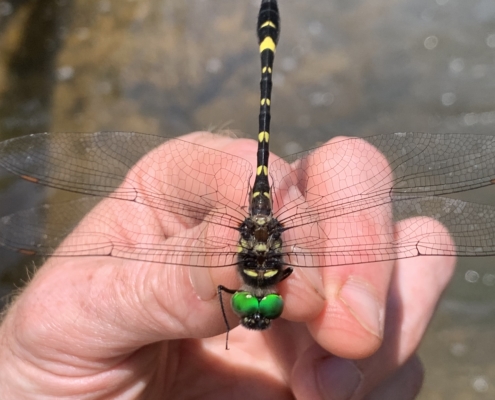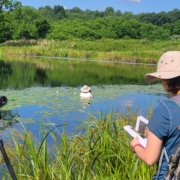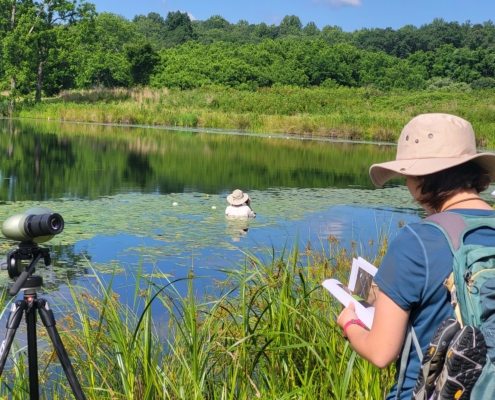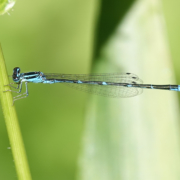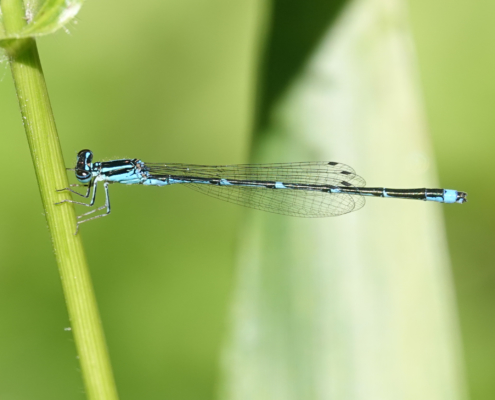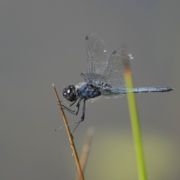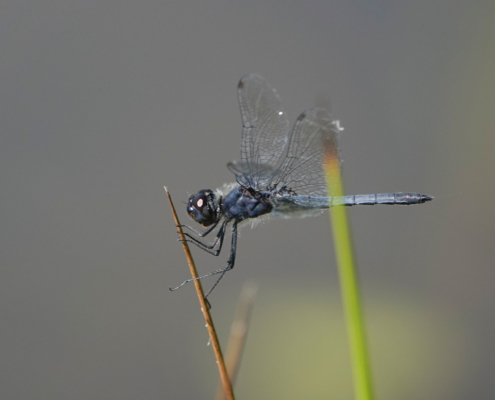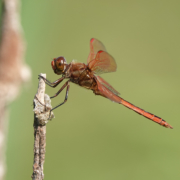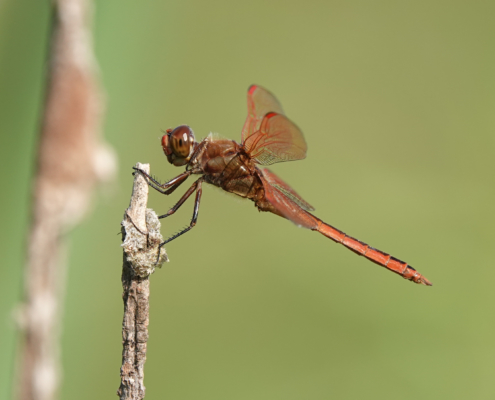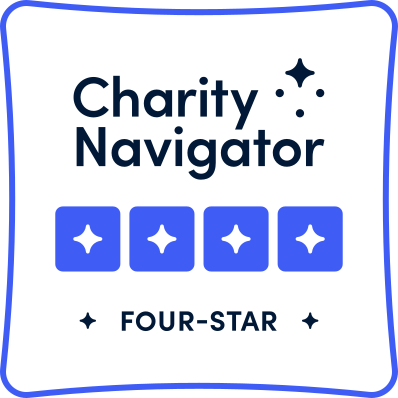The only way to know which species are doing okay and which are in trouble is to monitor populations over long periods of time. It can take decades to collect enough data to say with any confidence that a given species is declining. It’s never too late and the best time to start collecting data is now!
One standard protocol is to annually survey a 10-mile-diameter circle for whatever group you’re monitoring. This is the basis of the North American Butterfly Association butterfly count in July and the Audubon Christmas Bird Count in December. There are very few long-term data sets on dragonfly populations so in 2021 we launched two annual dragonfly counts, the Clifton Institute Dragonfly Count and the Rappahannock County Dragonfly Count using the same methods. For the se four annual counts, we work with volunteers to find as many species as possible within each circle. We are always looking for volunteers and you can sign up on our calendar here (you can use the Program Type drop-down menu and filter by Community science). If you’d like to see what we’re learning, you can find the data here:
Clifton Institute Butterfly Count Data
Clifton Institute Dragonfly Count Data
Rappahannock County Dragonfly Count Data
Juan Gonzalez, a Beloved Clifton Volunteer/Data Wizard of High Distinction, made a website where you can look at our Christmas Bird Count data as well as several other local counts.
Finally, we champion the use of eBird and iNaturalist to document Virginia’s biodiversity. You can contribute to science by submitting observations to our iNaturalist project (you can check out recent observations to the right). Or you can submit checklists to our eBird hotspot, which is currently the most diverse hotspot in Fauquier County!
iNaturalist Biodiversity Inventory
We are trying to to document every species that occurs on our 900-acre field station. We passed 2,500 species in 2023! Check out some recent finds below. And add your own observations to our iNaturalist project next time you visit the field station.

